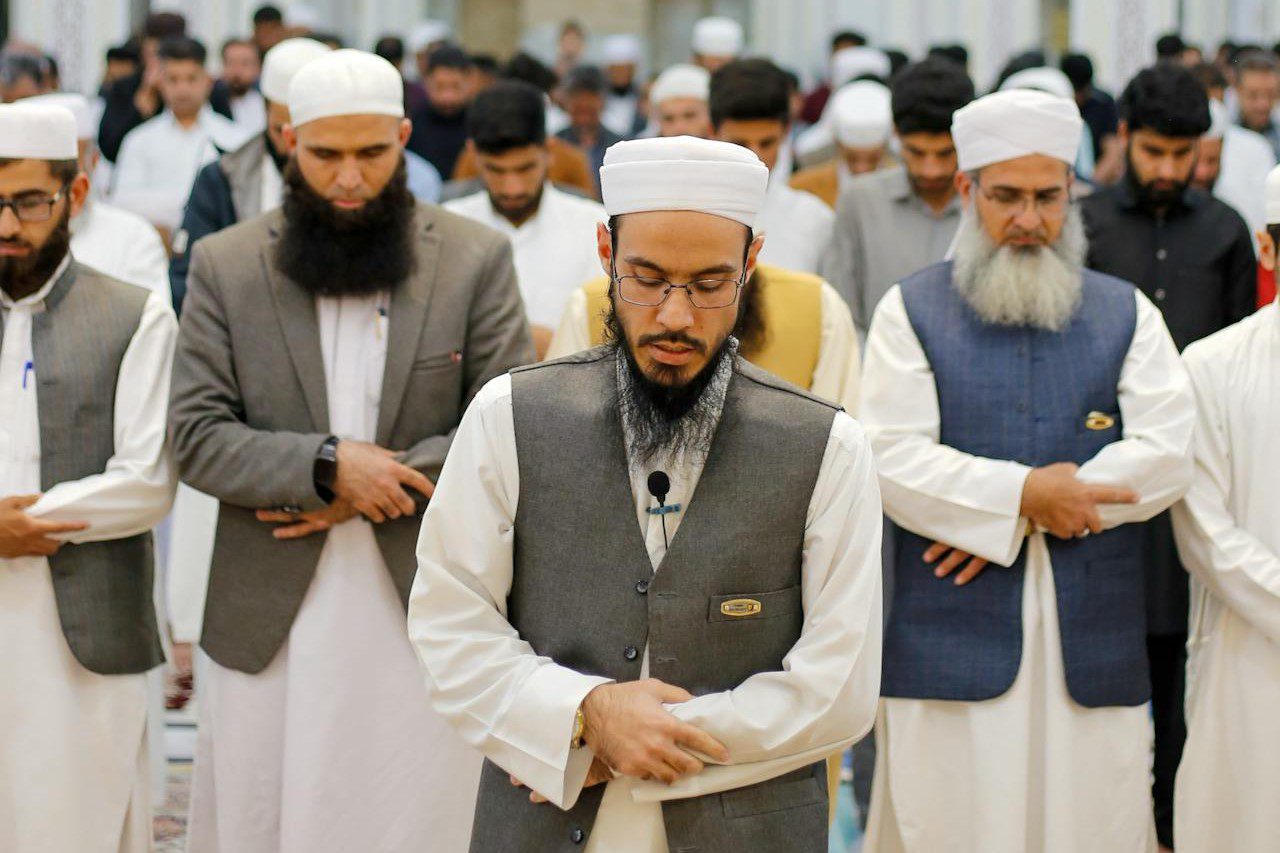Taraweeh prayer, observed by Muslims men and women during the holy month of Ramadan, is a special tradition that involves night prayers extending beyond the ‘Isha’ prayer. This guide serves as a resource for those looking to understand and partake in Taraweeh prayers, encapsulating its importance, the procedures involved, and answers to commonly asked questions.
What is Taraweeh Prayer?
Taraweeh (تراويح) is derived from the Arabic word ‘tarweeha’. The literal meaning of Taraweeh is to rest and relax, suggesting that these prayers are an opportunity for believers to seek blessings and solace after the whole day struggle. Taraweeh prayers are performed in congregation at night, following Isha prayer, and is Sunnah Mu’akkadah – a strongly recommended practice – according to the Islamic Shariah. One distinguishing feature of Taraweeh is the prolonged recitation of the Quran, with the aim of completing the entire book by the end of Ramadan.
Significance
The significance of Taraweeh lies in the sunnah (practice) of the Prophet Muhammad (peace be upon him), who performed these prayers during Ramadan. Muslims see this as an opportunity to earn reward and mercy from Allah, increase spirituality, and witness the beauty of the Quranic recitation.
How is it Performed?
Among the various Islamic schools of thought, there is a difference of opinion regarding the number of Rak’ahs (units of prayer) for Taraweeh ranges from 8 to 20, depending on the fiqah followed. The prayer leader known as ‘Imam’ leading the congregation often recite the Quran in beautiful accent with tajweed. After every four rak’ahs, he takes a pause to recite a specific Taraweeh dua and convey the summary of the portion which is recited. This sunnah magnifies the beauty of the Quran as well as Ramadan and to ensure that its divine messages resonate deeply within their hearts.
Step-by-Step Procedure:
- Perform 4 rahats Isha prayer.
- Begin with the intention of ‘performing Sunnah prayers of Taraweeh’.
- Pray in pairs of two rakats until you complete the 10 sets (typically 20 rakats).
- After every four rakats, pause for rest and dua e Taraweeh.
- Conclude with the Witr prayer after completing the Taraweeh rakats.
For those unable to attend the mosque services, it is entirely permissible to perform Taraweeh at home individually or with family members.
Etiquette and Tips
- Punctuality: Arrive at the mosque early to find a peaceful spot and focus on spiritual preparation.
- Attire: Wear appropriate and modest clothing out of respect for the prayer and the congregation.
- Focus and Reflection: Try to comprehend the meaning of the verses being recited for a more fulfilling experience.
- Pace Yourself: If 20 rakats are challenging, it is okay to perform fewer as long as you maintain consistency and sincerity.
- Hydration and Health: Keep yourself hydrated and eat healthily during Suhoor and Iftar to sustain energy levels for nighttime prayers.
Frequently Asked Questions
Q: Can i pray Taraweeh alone?
A: Yes, Taraweeh can be performed individually if one is unable to attend the congregation. But best practice is to perform it with congregation because it is sunnah. Read more to explore more.
Q: Is Taraweeh mandatory?
A: Taraweeh prayer is sunnah for both men and women, and the one who forsakes it without excuse is a sinner. It is proven to pray Taraweeh. Read more about its revelation.
Q: Can women perform Taraweeh with congregation?
A: Absolutely, women can perform Taraweeh with congregation, whether at the mosque or at home. But it is better for women to perform Taraweeh at home. See more detail regarding congregational prayer of Taraweeh for women.
Q: How many rakat is Taraweeh?
A: According to hadith, the Prophet (peace be upon him) used to pray twenty rak’ahs in addition to witr in Ramadan. Read more to know the exact rak’ahs of Taraweeh.
Q: Is there a specific supplication (dua) to recite during Taraweeh?
A: In hadith, there is no specific supplication mandated for Taraweeh; however, A dua known to us as Tasbeeh Taraweeh has been compiled by some jurists by collecting the words of different narrations for the convenience of the general public. See this dua e taraweeh.
Q: What if I am unable to complete the Quran during Taraweeh?
A: Completing the Quran in Taraweeh is sunnah. If due to any reason you are not able to complete, than it is ok. Your effort and intention are what truly count.
Q: When is Taraweeh prayer performed?
Conclusion
Taraweeh prayers are a cherished practice during Ramadan, fostering a sense of unity and devotion within the Muslim community. Whether observed at the mosque or home, the aim is to draw closer to Allah through prayer and reflection on the holy Quran. May your Taraweeh prayers be accepted and blessed. Ramadan Mubarak!
—
For further inquiries and detailed resources on Ramadan and Taraweeh prayer, please feel free to visit our Ramadan Resources.
Make this Ramadan more meaningful with the power of knowledge and collective prayer. o

